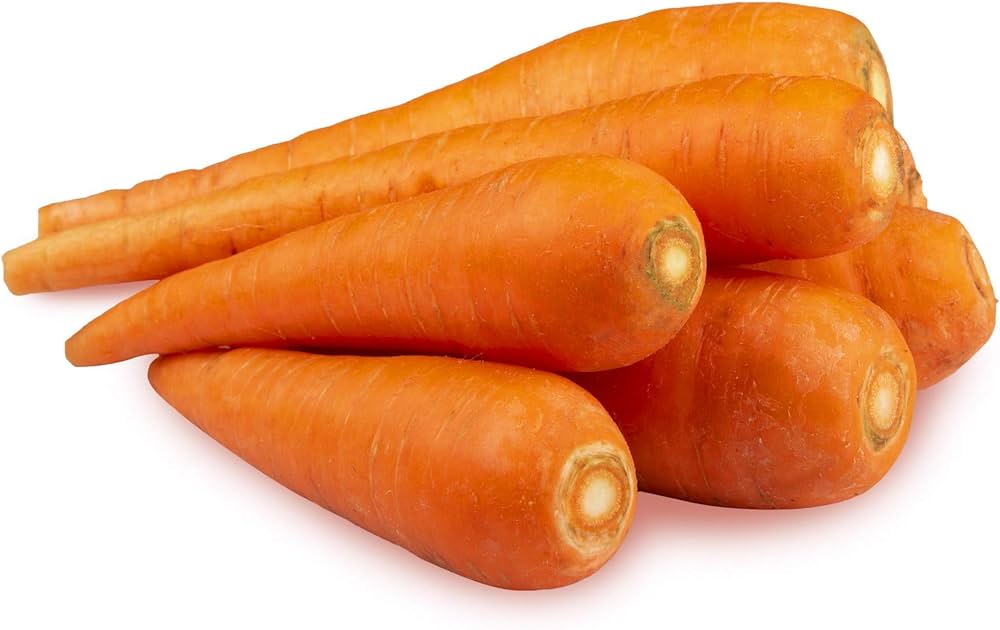Our Products
Carrot has a complex positive effect on the body

Carrot
Price: ₹ ---.00 - ---.00 / 1
Min 5 tons --- (MOQ)
Get Best Price
Business Type: Manufacturer, Exporter
Brand Name: Natural Foods
Usage/Application : Food
Preferred Buyer From
Location: India, Bangladesh, Canada, China, France, Ghana, Kenya, Sri Lanka, United Kingdom, United States, South Africa
Request To Call Send Enquiry
Product Details
Packaging Size: 25-50kg
Speciality: No Artificial Flavour
Country of Origin : India
Material : Carrot
Delivery Time: 30 Days
Quality Available : A Grade
Shelf Life : 12 Month
Packaging Type : ---
Product Code: ---
Payment Terms : L/C, T/T, Western Union, Other
Carrots are a popular and nutritious root vegetable known for their crisp texture, sweet flavor, and vibrant orange color, although they come in other colors as well. Here’s a detailed look at carrots:
1. Types of Carrots:
- Orange Carrots: The most common type, rich in beta-carotene, which gives them their characteristic color.
- Purple Carrots: These have a slightly spicier taste and contain anthocyanins, antioxidants that provide their purple color.
- Yellow Carrots: Milder and sweeter, yellow carrots are rich in lutein, beneficial for eye health.
- Red Carrots: Contain lycopene, another antioxidant, and have a unique flavor.
- White Carrots: These are less sweet and lack the pigments found in other varieties, making them milder in flavor.
2. Culinary Uses:
- Raw: Carrots are commonly eaten raw as a snack, in salads, or as part of vegetable platters.
- Cooked: Carrots can be boiled, steamed, roasted, sautéed, or grilled. Cooking enhances their natural sweetness.
- Soups and Stews: A staple in many soups and stews, carrots add sweetness and depth of flavor.
- Juices and Smoothies: Carrot juice is popular for its refreshing taste and health benefits.
- Baking: Carrots are famously used in baking, especially in carrot cakes, where they add moisture and sweetness.
3. Nutritional Benefits:
- Rich in Beta-Carotene: Carrots are one of the best sources of beta-carotene, which the body converts into vitamin A, essential for good vision, immune function, and skin health.
- Vitamins and Minerals: They provide vitamins K, C, and B6, potassium, and fiber.
- Low in Calories: Carrots are low in calories and fat, making them an excellent choice for healthy snacking.
- Antioxidants: Besides beta-carotene, carrots contain other antioxidants that protect the body from free radicals and may reduce the risk of chronic diseases.
4. Agriculture:
- Growing Conditions: Carrots prefer well-drained, loose, sandy soil and a cool climate. They are usually planted in the spring and can be harvested from late summer to fall.
- Global Production: China is the largest producer of carrots, followed by countries like the United States, Russia, and Uzbekistan.
5. Cultural Significance:
- Historical Use: Originally cultivated for their aromatic leaves and seeds, carrots have been grown for thousands of years. The orange variety we know today was developed in the Netherlands in the 17th century.
- Culinary Traditions: Carrots are featured in traditional dishes worldwide, from European stews and Asian stir-fries to Middle Eastern salads and Indian curries.
6. Storage and Handling:
- Shelf Life: Carrots can be stored in the refrigerator for several weeks. It’s best to store them in a plastic bag or container to retain moisture and keep them crisp.
- Avoiding Spoilage: Carrots should be kept away from ethylene-producing fruits like apples, which can cause them to spoil more quickly.
7. Health Benefits:
- Eye Health: The high levels of beta-carotene in carrots support good vision, particularly night vision, and help prevent conditions like cataracts and macular degeneration.
- Heart Health: Carrots can help lower blood pressure and reduce the risk of cardiovascular diseases due to their potassium content and antioxidant properties.
- Digestive Health: The fiber in carrots supports a healthy digestive system, promoting regular bowel movements and preventing constipation.